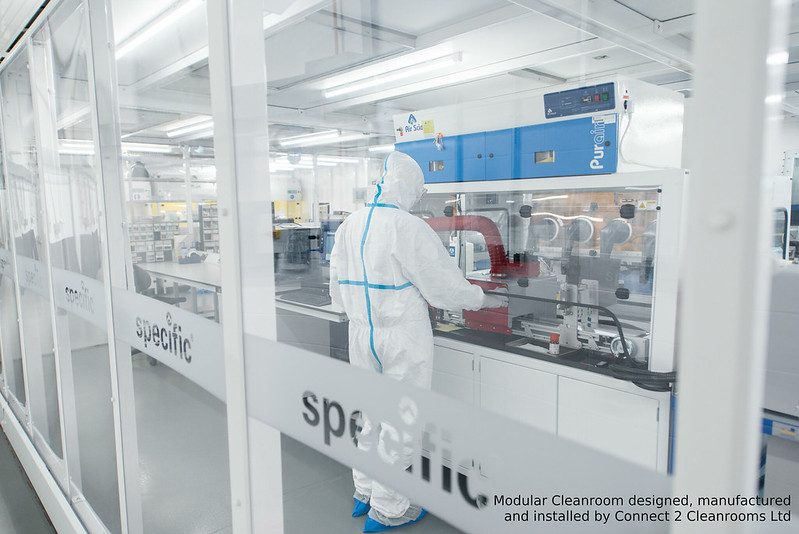Swansea University has achieved the Laboratory Efficiency Assessment Framework (LEAF) sustainability award for many of its laboratories across campus including SPECIFIC‘s.
The LEAF tool, devised by UCL (University College London) and supported by UKRN (UK reproducibility network) awards Bronze, Silver and Gold levels to labs that have improved their sustainability and efficiency in line with certain criteria such as recycling.
SPECIFIC Facilities Manager Mark Watkins introduced the LEAF efficiency program to SPECIFIC as part of the universities Environmental Management System (EMS).*
Mark said, “The Laboratory Efficiency Assessment Framework is a positive and active way of engaging lab owners and users to actively work towards targets set within the Environmental Management System.”
Senior Clean Room Technician Kat Lacey told us a bit more about the award…
Why is sustainability in labs important to SPECIFIC?
SPECIFIC is driven by sustainability at its core, with researchers dedicated to improving next-generation sustainable energy capture and storage. We are all passionate about minimising energy usage and therefore any negative impact on the planet, and this extends to our research environments as well.
What kinds of changes did you have to make?
Research labs are a high energy usage environment, and it can be difficult to make a meaningful impact on the outcome. The LEAF initiative has helped us focus on the little things which are also impactful, such as proper management of fume hood usage and switching off lights or equipment in labs as we leave. It has also focused our attention onto useful resources for larger changes such as Uni Green Scheme for re-using second-hand lab equipment and considering any updates we can make to equipment to reduce its energy usage such as upgrading lighting to LED. We already had a few schemes in progress as well such as Terracycle bins for collecting waste items to be recycled.
What were the challenges and how did you overcome them?
To make a real impact the small changes (not leaving equipment running, switching lights off) have to be affected by all lab users, and with a considerable number of people who access our labs a culture change was required for this. Persistence and consistency in reminding people (alongside some clear signage) helps, along with making sure we are teaching new lab users these new rules.
Did the changes affect lab users / research in any way?
Lab users are much more mindful about the way they leave a lab now, switching off equipment and utilising the various recycling schemes we have. There’s still room for improvement, but we will keep going!
What would you say to other labs thinking about applying for the award?
It is worth doing even if your research group is already highly focused on sustainability. There will always be things you can do to improve and a scheme such as this makes changes more easily quantifiable, allowing you to see where you have improved and considering what more you can do that you might not have been aware of previously.
Will you be applying next year?
We are keen to aim for the silver award next year as we already know there are more things we can implement and improve on! The SPECIFC Facilities Management Team are planning to roll the LEAF program out to the wider project at its PMRC and SHED facilities very soon.
*The EMS is accredited to international standard ISO 14001 which is a standard of requirements that clearly defines and establishes controls to reduce a company’s environmental impact as a result of its everyday operations and allows the effective implementation of an Environmental Management System. Targets and objectives must be defined, and legal requirements met in order to maintain compliance.

